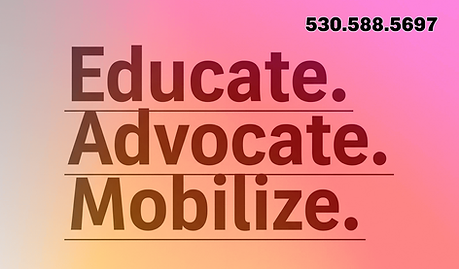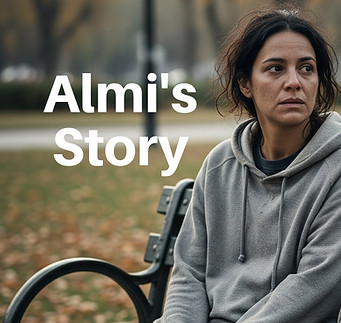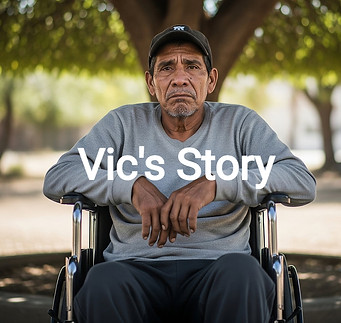
Dos Rios (CA-523) Continuum of Care


Colusa County Recovery
The U.S. Department of Housing and Urban Development (HUD) defines "lived experience" as the first-hand knowledge and expertise of individuals who have personally navigated homelessness or housing instability. By including these individuals in decision-making, HUD aims to develop more effective, relevant, and responsive programs.

HOMELESS VOICES ARE NOT INCLUDED ON OUR LOCAL CONTINUUM of CARE BOARD
Dos Rios | CA-523 CoC
We have serious concerns about the power imbalance playing out at the CA-523 Continuum of Care (CoC). The executive board's composition is dominated by —four county employees-- on a six-seat board serving three counties: Colusa, Glenn, and Trinity. Our reseach indicates that CA-523 CoC's executive board composition has violated its own charter rule that explicitly requires the board to be a "diverse body of stakeholders" and lists over 20 distinct sectors with many being mandated by HUD. The board's 2024 composition consists of only two sectors, with an undeniable concentration of power in the hands of county employees, which raises red flags based on HUD requirements and best practices for good governance, and diverse representation on CoC boards.
The Appearance of Negligence
Given these responsibilities, a compelling case can be made that CA-523 CoC's lead agency could be negligent in its duty to uphold the charter. By its own rules, the lead agency is tasked with recruiting a diverse board and maintaining the governance charter.
Beyond seemingly violating its own charter, below are the HUD violations we are investigating found in 24 CFR Part 578. (Sources:HUD and Code of Federal Regulations)
-
24 CFR § 578.95: Conflicts of interest. The high concentration of county workers with voting power on CA-523 CoC creates an "appearance of impropriety" and a potential organizational conflict of interest.
-
24 CFR § 578.95 (b): CoC Board of Directors may not participate in or influence discussions or decisions concerning the award of a grant or other financial benefits to organizations that the member or officer represents.
-
2 CFR Part 200: Board members must resolve or avoid conflicts of interest, which may involve recusal from discussions and votes where a conflict exists, and signing annual conflict of interest statements.
-
24 CFR § 578.5(b)(2): Composition of the board. The board must include at least one homeless or formerly homeless individual.
-
24 CFR § 578.5(a): Membership composition. The CoC must consist of representatives from a broad range of organizations, including but not limited to --advocates, faith-based nonprofits and law enforcement.
How We Gather Reseach & Data
Our team utilizes two large-scale multimodal AI architectures that are capable of advanced reasoning and analysis. The purpose of these AIs is to analyze complex data, identify underlying patterns, and offer data-driven research hypotheses and insightful conclusions to help us effectively advocate for the communities we serve.
OPEN LETTER OF CONCERN
Subject: CA-523 CoC
8/4/2025
TO THE DOS RIOS CONTINUUM OF CARE (CoC),
Your organization's mission is to end homelessness in Colusa, Glenn and Trinity Counties. This mission cannot be fulfilled through a top-down approach. It requires a fundamental restructuring of power and a direct demand for accountability. This is not a suggestion; it is a declaration of what is required: the immediate and active inclusion of a board member with lived experience of homelessness.
The big question is not simply "Why should Dos Rios Continuum of Care do this?" but "How can Dos Rios ethically and strategically proceed without this voice at the table?" The answer is that it cannot.
Federal mandates from the U.S. Department of Housing and Urban Development (HUD) and other state agencies, which govern your funding and operational principles, require the meaningful inclusion of people with lived experience of homelessness in the planning and implementation of services. This is not a suggestion or a box to be checked. It is a fundamental directive that recognizes lived experience as an indispensable form of expertise and a moral necessity.
The authentic voice of someone with lived experience, who has navigated the system, is not a courtesy, but a powerful imperative that directly impacts the effectiveness and humanity of your work. It is these direct insights that are vital for challenging the ineffective assumptions that often fail to address the realities of homelessness, demanding that all solutions be practical, relevant, and effective from a ground-level perspective, not a theoretical one.
Credibility is not given; it is earned. When a person with lived experience holds a position on your board, it is the only way to prove that this is a true partnership, not tokenism. This inclusion is the foundation for building the trust needed to encourage engagement, create a culture of mutual respect and genuine community collaboration, and achieve outcomes that produce measurable results on the ground.
An executive board cannot effectively serve the interests of the unhoused if it is composed solely of power and influence; to do so is to create a county-level oligarchy that ultimately serves the system and not the needs of the unhoused.
A critical shift in federal policy is underway, with a renewed focus on eliminating waste, fraud, and misuse of funding. This puts Continuum of Care systems under intense scrutiny, holding them accountable for the effectiveness of their services. Without demonstrable results—the kind that can only be achieved with the authentic input of lived experience—the entire system of care is at risk of being eliminated and replaced. There has never been a more critical time to act and make a course correction.
Lastly, bringing the perspective of lived experience into your board room and committees will not just fulfill a federal mandate; it will sharpen your focus and strengthen your mission. It will ensure that every single initiative is not just for the community, but truly with the community.
The people served must be at the beginning of the path, their voices represented on the board, helping to forge the way forward, not just at the end of a long chain of services.
Sincerely,
Susan M. Wagenaar
Homeless in 2019
COMMUNITY ADVOCATE
530-588-5697
CALL TO ACTION
This letter serves as a formal request for Dos Rios CoC to provide a written plan of action detailing how a person with lived experience will be included on the board, in compliance with HUD mandates. We will publish this plan for public review on this webpage.
READING ROOM
Dos Rios CoC 10 Year Plan (2017)
Dos Rios CoC Operating Mannual
About Dos Rios CoC
The Dos Rios Continuum of Care envisions communities where every person is appropriately and safely housed and provided access to an array of supportive services that will alleviate homelessness through prevention and assistance toward improved health outcomes.
Dos Rios CoC Executive Board
The Dos Rios Continuum of Care if governed by an Executive Board made up of representatives from each of the three counties served. For 2024, the Dos Rios CoC Executive Board is comprised of the following voting board members: Click here to read our DEEP DIVE on their board.
The Lead Agency for the Dos Rios CoC is the Colusa-Glenn-Trinity Community Action Partnership,which is administered through the Glenn County Community Action Department. If you have any questions or wish for more information, please contact the CoC at gccad@countyofglenn.net or call (530) 865-6129.



_edited.jpg)





